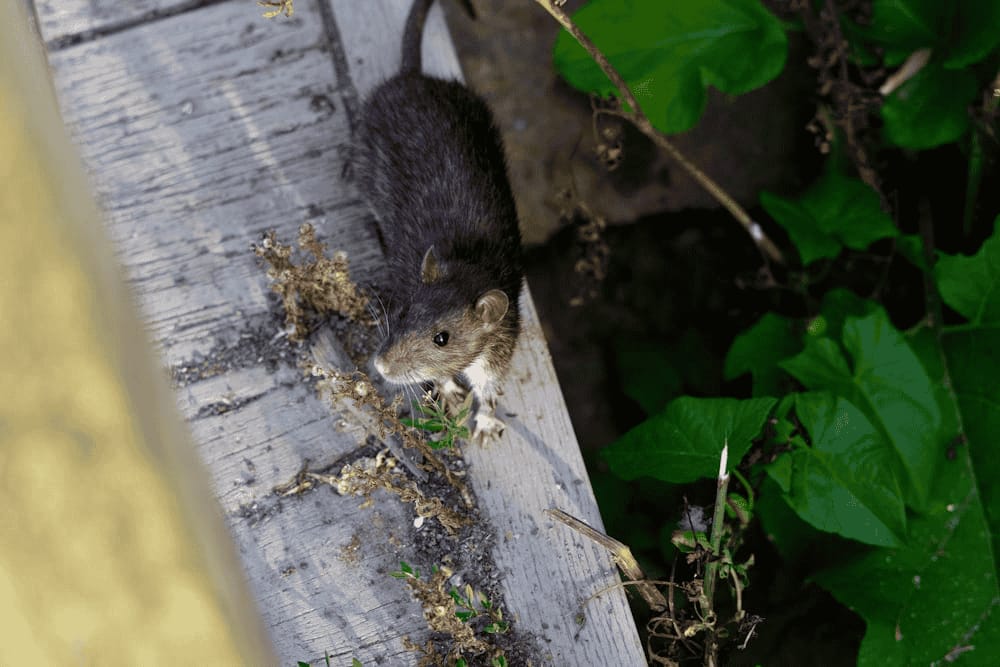Natural Rodent Repellent finds when 14 million households in the US reported seeing rodents in their homes, with many of these cases stemming from gardens and yards. Living in areas like Portland, Seattle, or Boise, residents often face an unnerving reality of unexpected visitors. As a homeowner hoping to protect your space from future intrusions, you might have tried conventional methods that only provide temporary fixes. These unsafe and often toxic measures can put your family, curious children, and pets at risk, making it essential to find eco-friendly prevention techniques that work both inside and outside your home.

Natural Rodent Repellent- The answer
Natural rodent repellents such as peppermint oil, eucalyptus oil, and certain plants can effectively deter rodents while keeping your home and garden safe.Natural rat repellents can offer effective and safer solutions.
From my own experience dealing with infestations near the Pacific Northwest, I’ve learned that identifying the root issue is key to effective rodent control. Instead of buying harsh solutions online, consider tips like planting rodent-repelling herbs, sealing entry points, and using ultrasonic devices to prevent unwanted guests from entering your garden. These nuisance pests not only bring health risks but can also cause structural damage to your property. If the problem persists or spikes in the fall, don’t hesitate to contact professionals. It’s worth deciding on the right measures for your unique situation, especially if you’re hoping to avoid interaction with rodents altogether. Why not try something else and explore effective ways that are both practical and safe?
Table of Contents
Prevention Is Key
- Inspect your property meticulously for potential entry points like gaps, cracks, or holes in walls, floors, and foundations.
- Seal openings tightly using steel wool, caulk products, or other durable materials to prevent rodents from exploiting them.
- Ensure doors and windows close tightly by installing door sweeps and adding weather stripping to block access.
- Check for utility pipes, a common entryway, and secure them properly to stop rodents from squeezing through.
- Store food in airtight storage containers, clean up crumbs, spills, and keep trash cans closed to remove food sources.
- Declutter areas like basements, attics, and garages, as these are prime hiding spots where rodents thrive.
- Follow Integrated Pest Management principles, which involve inspection, identification, and treatment.
- Hire a licensed professional for a holistic process if needed to ensure your property and health are protected.
- Keep spaces cool and tidy to reduce the warmth rodents seek, minimizing the likelihood of infestations.

Natural Rodent Repellent: Keep Gardens Pest Free!
Natural Rat Repellents for Your Home and Garden
When it comes to protecting your home and garden from pests like roof rats and mouse, many people want to avoid using harmful chemicals. Instead, natural rat repellents can offer effective and safer solutions. Below, we’ll explore practical and eco-friendly options that you can use to keep rodents away.
Peppermint Oil: A Powerful Natural Rat Repellent
One of the most effective natural rat repellents is peppermint oil. Its strong scent is overwhelming to rats, making it an excellent option for keeping them away. Simply soak cotton balls in peppermint oil and place them near entry points, in corners, and in frequently visited rooms. To maintain its potency, you’ll need to replace the cotton balls every few days.
Eucalyptus Oil: A Fresh Alternative to Peppermint
Eucalyptus oil is similar to peppermint oil and works wonderfully to deter rats. Its fresh, clean fragrance can be applied using cotton balls or a soft cloth placed around the home. This not only keeps your space smelling fresh but also prevents rodents from coming too close.
Plants That Naturally Repel Rodents
Certain plants are natural enemies of rats and mice. Consider growing lavender, elderberry, daffodils, or even mint plants in your garden or in pots around your home. These plants emit scents that rodents dislike, while also adding beauty to your space. You can also use dried bay leaves, oak leaves, or make sachets for closets and drawers to discourage rodents from nesting.
Essential Oils: The Multipurpose Solution
A mix of essential oils can effectively deter rodents. Combine peppermint oil, lemon oil, citronella oil, or eucalyptus oil with a few teaspoons of rubbing alcohol in a spray bottle. Use this solution to spray areas like the kitchen, basement, and garage. Be sure to reapply as the smell may fade over time, and remember to avoid areas where the spray could be toxic to other animals or pets.
White Vinegar Deter Rats
Yes! White vinegar has a potent smell that rats hate. You can mix food-grade vinegar with water and spray it in crawlspace’s, attics, or entry points. Be cautious, as its acidic nature can cause staining and may irritate skin or eyes if inhaled. Use this in conjunction with other measures like traps and baited areas to monitor rodent activity.
Plug-in Pest Repellers Really Work
There are ultrasonic plug-in pest repellents available that manufacturers claim can help. These devices work in the short term and can be paired with other methods. However, many customers find that their effectiveness fades over time, so it’s best to use them as a supplement rather than the only solution.
Spice and Herb Barriers
Rodents dislike strong scents from certain spices and herbs. Scatter whole cloves, apply clove oil, or place bay leaves in key areas like entryway points. You can also sprinkle cayenne or black pepper for an added layer of protection.
Garlic and Onion: A Smelly but Effective Solution
Rodents hate the smell of onions and garlic, making them excellent natural repellents. You can place slices of fresh onion or spread crushed garlic in garden corners where rats are likely to hide. However, these items can spoil, so be sure to replace them regularly to maintain their effectiveness. Be mindful of pets, as onions and garlic are toxic if consumed. This method is simple but can be a bit wasteful if not managed properly.
Vinegar and Ammonia: Scaring Rodents with Strong Scents
The strong scent of vinegar and ammonia works wonders to deter rodents. Their acidic nature mimics the smell of predator urine, which can scare away rats. Soak cotton balls in a mixture of vinegar and water, or add some ammonia, and place them at critical entryway points in your garden. Be cautious if you have pets, as the strong smell may irritate them. Reapply regularly for consistent results.
Cats: Nature’s Ultimate Pest Control
If you have a cat, you already have a natural rodent deterrent. Rats and mice are naturally wary of cats, whose sense of smell and hunting instincts make them formidable predators. Even the presence of pheromones left behind by cats can discourage rodents from entering your garden. Encouraging a cat to patrol the area is a low-maintenance and highly effective solution.
Conclusion
Taking swift action and relying on natural methods can effectively address a rodent infestation, but for severe problems, expert help is invaluable. Trusting professional pest control services like Fix Pest, with their proven expertise and tailored treatments, ensures your home and garden remain safe. By combining proactive measures with expert guidance, you can achieve long-term peace of mind and a truly rat-free environment. Contact us today for a free Quote!
FAQ’s
What is the best homemade rodent repellent?
Plants like Lavender, mint, daffodils, and elderberry can repel rats with their strong scents. When planted as a natural barrier in your garden, they protect your home while adding beauty.
Is vinegar a good rat repellent?
Yes, vinegar is believed to be an effective rodent repellent due to its sharp scent, which rodents dislike. Simply soak cotton balls in vinegar and place them near areas where they might be entering your home or garden. It doubles as a cleaning solution, adding freshness while deterring pests.
How do you make organic rat repellent?
Mix peppermint oil, citronella, eucalyptus, cayenne pepper, black pepper, crushed pepper, and cloves with water to make a rat-repellent spray. Spray it around your garden to keep rodents away.